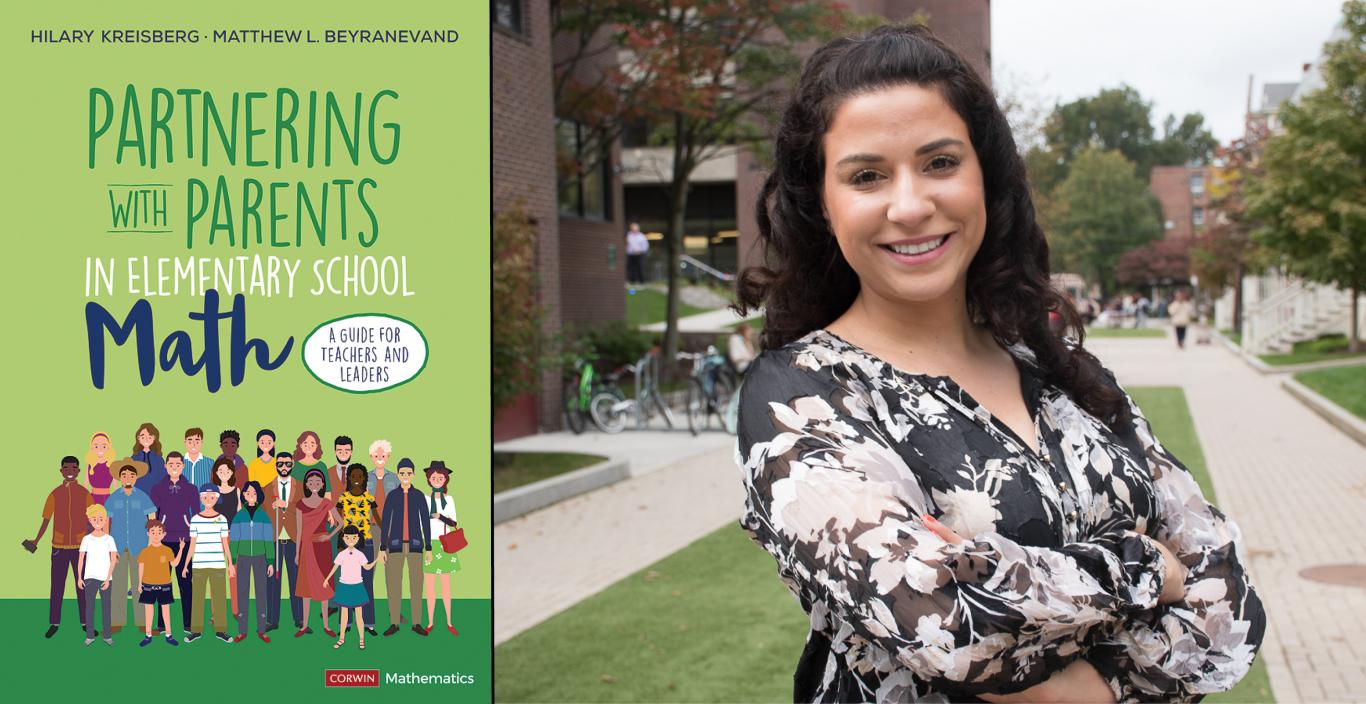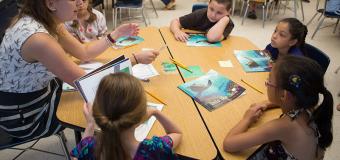Parents and caregivers, especially in the era of remote learning, are critical allies in the effort to build children’s skills in mathematics and other academic subjects, but they’re often at a loss to understand contemporary concepts themselves.
But Dr. Hilary Kreisberg, director of our Center for Mathematics Achievement, is again riding to the rescue. Her second book, “Partnering with Parents in Elementary School Math,” was released by professional-learning material publisher Corwin in February. The resource, co-written by Kreisberg and Dr. Matthew Beyranevand, K-12 math coordinator for Chelmsford, Massachusetts, public schools, “provides educators with long overdue guidance on how to productively partner and communicate with families about their children’s mathematics learning,” according to the publisher.
This book follows Kreisberg and Beyranevand’s 2019 “Adding Parents to the Equation,” which has won several awards and was named by BookAuthority.org one of the 78 Best Parent Books of All Time and one of the 100 Best Math Books of All Time.
“The COVID-19 pandemic has only exacerbated the issues that have been plaguing U.S. public schools for years, especially around mathematics instruction at the elementary level,” Kreisberg says. “Parents and caregivers were put in a precarious situation this year, having to become their child’s teacher in some ways.”
The book includes reproducible surveys, letters and planning documents to help improve the home-school relationship, which in turn helps students, parents, teachers and education leaders alike, according to the publisher.
Kreisberg indicates the resource supports teachers and leaders in enhancing how they communicate with families around mathematics instruction while also considering what they communicate. It helps educators understand how to team up with families to support their children’s learning, and that sort of partnership might have made remote learning a bit easier.
“Given that mathematics is already an anxiety-provoking subject for many adults, had the education community already partnered with caregivers to support the transition of the way we teach math today, I can only wonder if things would’ve been different this year,” she says.



